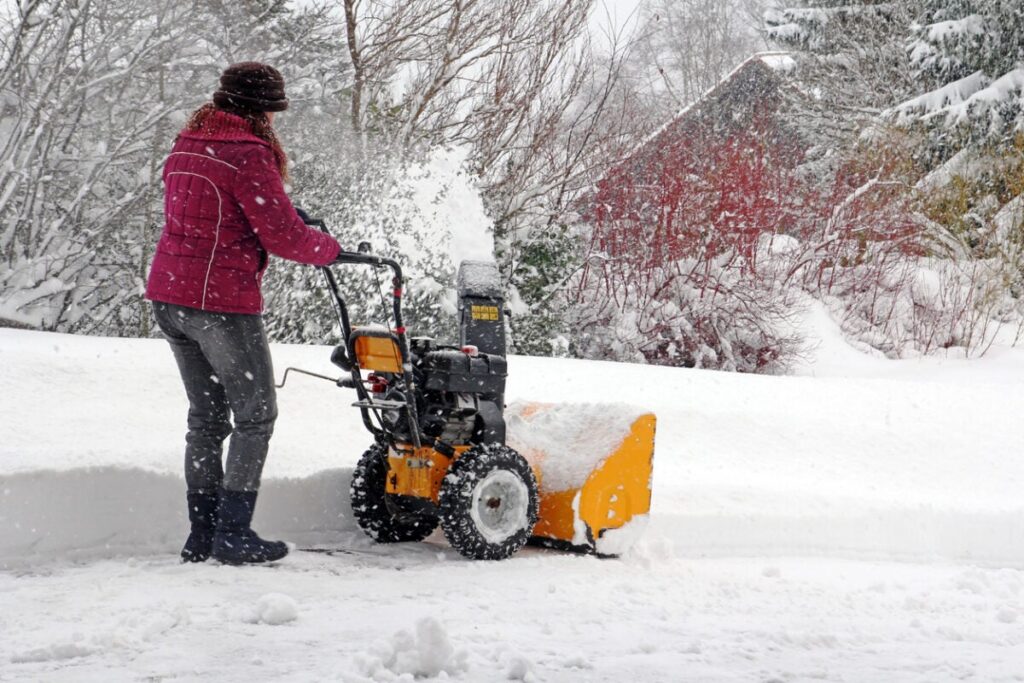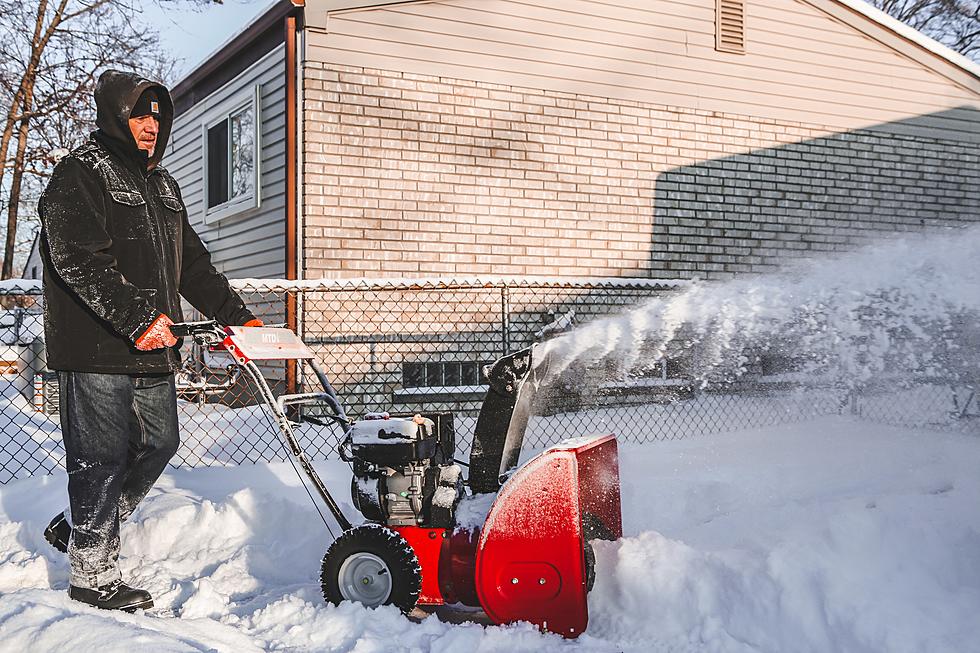Imagine waking up early in the morning to a picturesque snow-covered landscape. While it may be tempting to fire up your trusty snow blower and make quick work of clearing the snow from your driveway, there are certain situations where it may be wiser to hold off on using this powerful machine. Whether it’s an issue of safety, preserving your property, or simply enjoying the tranquility of a snow-covered world, knowing when not to use a snow blower can save you from unnecessary headaches and provide a different perspective on tackling winter’s frozen wonderland.
When Not to Use a Snow Blower?
Using a Snow Blower on Wet or Heavy Snow
While snow blowers are incredibly efficient at clearing snow, there are certain conditions in which they are not suitable. One such situation is when you are dealing with wet or heavy snow. Snow blowers are designed to handle light, dry snow, so using them on wet or heavy snow can cause clogging and damage to the machine. In these instances, it is recommended to use a shovel to manually remove the snow.
Using a Snow Blower on Icy Surfaces
Another situation where using a snow blower may not be the best option is when you are dealing with icy surfaces. Snow blowers are equipped with augers that spin and propel the snow out of the chute. However, when the surface is icy, these augers may not effectively grip the snow, leading to poor performance and potential damage to the machine. In such cases, it is safer and more effective to use de-icing agents or salt to melt the ice before manually removing the snow.

This image is property of images.radio.com.
Using a Snow Blower in Limited Space
Snow blowers require a certain amount of space to maneuver effectively. If you have a small driveway, narrow walkways, or a cluttered area, using a snow blower may not be the best choice. Maneuvering a snow blower in limited space can be challenging and may result in damage to the machine, nearby objects, or even injury to yourself. In these situations, it is better to use a shovel or a smaller, more maneuverable snow removal tool.
Using a Snow Blower on Gravel Surfaces
Snow blowers are typically designed to operate on smooth surfaces such as asphalt or concrete. Using a snow blower on gravel surfaces can lead to damage to the machine and potentially dangerous flying debris. The augers of the snow blower can pick up and throw small rocks, posing a risk to people and nearby property. In such cases, it is advisable to use a shovel or a specialized snow removal tool designed for gravel surfaces.

This image is property of empire-s3-production.bobvila.com.
Using a Snow Blower in Strong Winds
While snow blowers are powerful machines, they may not be suitable for use in strong winds. Snow being blown by strong winds can create challenging conditions for a snow blower, reducing its efficiency and potentially causing clogs. Moreover, the wind can also blow snow back onto areas you have already cleared, making the task more difficult and time-consuming. In strong wind conditions, it may be more effective to use a snow shovel or wait until the winds subside before employing a snow blower.
Using a Snow Blower on Slopes or Uneven Terrain
Snow blowers are typically designed to operate on flat or gently sloping surfaces. Using a snow blower on steep slopes or uneven terrain can be dangerous and increase the risk of accidents. The machine’s stability may be compromised, making it difficult to maintain control. To tackle snow removal in such areas, it is recommended to use a shovel or a specialized snow removal tool that is designed to handle uneven surfaces.

This image is property of townsquare.media.
Using a Snow Blower with Physical Limitations
It is important to consider your physical capabilities when deciding whether to use a snow blower. Snow blowers can be heavy and require physical strength to operate, particularly when clearing heavy or packed snow. If you have physical limitations or health conditions that may hinder your ability to safely operate a snow blower, it is advisable to seek assistance from others or opt for alternative methods of snow removal.
Using a Snow Blower without Proper Maintenance
Using a snow blower without proper maintenance can lead to a variety of problems. Neglecting regular maintenance tasks such as oil changes, spark plug replacements, and belt adjustments can result in reduced performance and potential breakdowns. It is essential to follow the manufacturer’s guidelines for maintenance and ensure that the snow blower is properly maintained before each use. Neglecting maintenance can not only affect the snow blower’s performance but also compromise your safety.

This image is property of www.travelers.com.
Using a Snow Blower without Safety Precautions
operating a snow blower without taking proper safety precautions can result in serious injuries. It is crucial to familiarize yourself with the machine’s safety features and to follow all safety guidelines provided by the manufacturer. This includes wearing appropriate clothing, such as insulated gloves and boots, using hearing protection, and avoiding loose-fitting clothing that may get caught in the machine. Additionally, be vigilant of any bystanders and keep a safe distance from them when operating the snow blower.
Using a Snow Blower When it’s Not Necessary
Lastly, it is important to consider whether using a snow blower is necessary in the first place. In certain situations, using a shovel or a broom may be more efficient and safer. For instance, if the snowfall is minimal, or if the area that needs to be cleared is small, manual snow removal methods can be quicker and more practical. Before reaching for your snow blower, assess the situation and determine if it truly requires the use of a machine or if manual snow removal methods would suffice.
In conclusion, while snow blowers are excellent tools for efficiently removing snow, there are certain circumstances in which they are not the most suitable option. Using a snow blower on wet or heavy snow, icy surfaces, limited spaces, gravel surfaces, strong winds, slopes or uneven terrain, with physical limitations, without proper maintenance or safety precautions, or when it’s not necessary can lead to problems, damage, and accidents. By understanding these limitations and considering alternative methods, you can ensure safe and effective snow removal throughout the winter season.

This image is property of www.gardentoolexpert.com.
